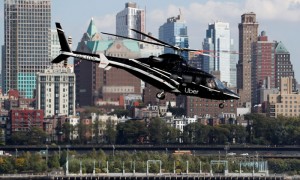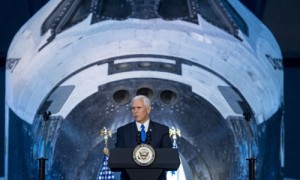China must develop its own large passenger jetliner no matter how difficult this may be, President Xi Jinping said.
Chinese engineers are struggling to stick to the development schedule, and obstacles have recently pushed back domestic models' maiden flights.
Xi made the comments during an inspection of Shanghai's Commercial Aircraft Corp of China, which is working on the C919. He said the country must spare no effort to build a strong manufacturing industry and develop its own large aircraft so China can become a real world power.
"In the past, someone said the best choice for us is to rent (passenger aircraft) from others and then to buy (them), and that the last option is to make our own," the president told the company's engineers on May 23.
"But we have reversed this notion. We will invest more to develop and produce our own large aircraft."
Xi boarded a demonstration prototype of the C919 and sat in the first-class cabin to feel how comfortable the seat is, Xinhua News Agency reported.
Company executives also showed Xi the piloting instruments' layout in the cockpit.
The president also talked with several test pilots, who briefed him on the global flight tour that tested the performance of the ARJ21, China's domestically developed regional airliner.
Standing in front of a crowd of researchers and engineers, Xi said the nation's aviation industry is rising after decades of difficulties.
"Now we have made new strides along the path of (developing) large aircraft, and we must — and will — make our own large jetliner."
"Large aircraft" are big transport planes that can carry at least 100 tons or trunk liners containing over 150 seats, senior Chinese aviation official Liu Daxiang told Xinhua.
Launched in 2008, the C919 project is the country's latest attempt to break the duopoly of Europe's Airbus and the United States' Boeing. The aircraft is set to compete against the Airbus A320, the Boeing 737 and the Russian Irkut MS-21.
It will be able to carry up to 168 passengers and will have a maximum flight range of about 5,500 kilometers.
COMAC originally planned for the jetliner to undertake its maiden flight in 2014.
But the plan has been postponed due to Chinese engineers' lack of experience and technical obstacles, project officials said.
The company's latest timetable says the maiden flight is expected to take place in 2015, with the first deliveries scheduled for 2017.
COMAC executive Tian Min explained that a large jetliner is the modern world's most sophisticated industrial product.
Therefore, its development requires the highest levels of project management, and technological and manufacturing capabilities. Yet China remains weak in these areas.
Also, many new materials and cutting-edge manufacturing techniques have been used to develop the C919. This has added to the complexity and risks, and requires more time for testing, he said.
Han Kecen, vice-president of COMAC's Shanghai Aircraft Design and Research Institute, said China developed all the C919's core technologies.
The first large part of the C919 — the forward fuselage, which is the plane's front section and includes the first-class cabin — rolled off the assembly line at Hongdu Aviation Industry Group in Jiangxi province early this month. It will soon be delivered to COMAC.
The forward fuselage consists of more than 1,600 parts and is made of third-generation aluminum-lithium alloy. This is the first time the alloy has been used in a Chinese commercial aircraft.
Meanwhile, COMAC has begun to manufacture the airframes of the first three C919s that will perform test flights. Assembly of the first one will begin by year-end, COMAC deputy general manager Wu Guanghui said.
The company has already received 400 C919 orders from 16 domestic and foreign clients.
The number of passenger aircraft in China will rise from 1,969 in 2012 to 6,494 in 2032, accounting for 17 percent of the global total, the company estimated.
Chinese enterprises and individuals are expected to purchase 5,357 aircraft with at least 50 seats worth a total of $647 billion in that period, it forecast.
更多英语新闻







